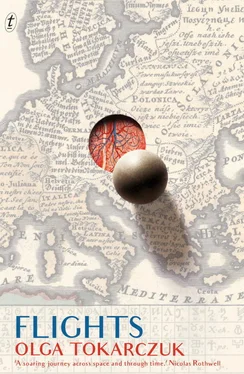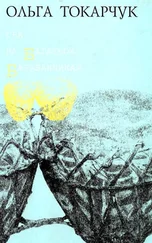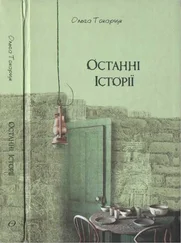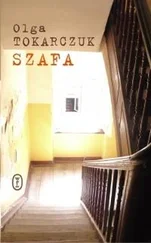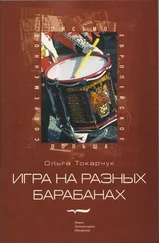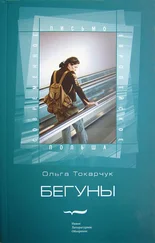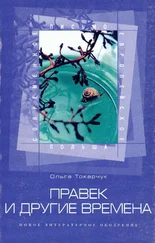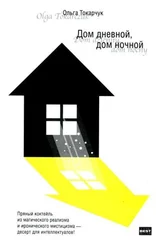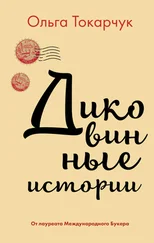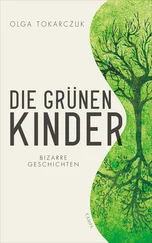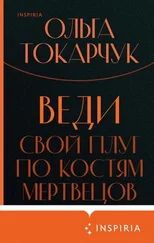It was a sad sight – rooms now empty after the sale of the collection. Professor Ruysch cast a lingering gaze over them and noted on the wooden shelves some darker stains – flat projections of the three-dimensional jars, traces in the ubiquitous dust, barely a width and length, without a hint of reference to their contents.
He was getting close to eighty now. The collection was the product of his work over the past thirty years, for he had started fairly early. He can be seen in a painting by someone named Backer, conducting the best anatomy lessons in town at the age of thirty-two. The painter managed to capture the particular expression on young Ruysch’s face – self-confidence and mercantile cunning. In the painting we also see a body prepared for dissection, the corpse of a young man perspectivally foreshortened, looking fresh. The body looks alive – the skin colour is a milky pink, not at all that of a corpse, its bent knee brings to mind the movement of a person lying naked on his back but instinctively about to cover the shameful part of his body before prying eyes. It’s the body of hanged convict Joris van Iperen, a thief. The surgeons cloaked in black are to this embarrassed and defenceless dead body an unsettling contrast. It shows what thirty years later made the professor’s fortune – that mixture of his creation preserves the freshness of tissues for a very long time. Likely the same composition that Ruysch used to conserve his rare anatomical specimens. Deep down he worries he won’t have time to reproduce it now, although he feels exceptionally well.
The professor’s daughter, a fifty-year-old woman entirely dedicated to him, with delicate hands hidden in cream-coloured lace, is just organizing the girls to clean up. Almost no one remembers what her name is, and she’s perfectly content with ‘Professor Ruysch’s daughter’ and ‘Miss’, as the cleaning women call her. But we remember – it’s Charlotta. She has the right to sign documents on behalf of her father, and the signatures are impossible to tell apart. In spite of her delicate hands, that lace, and her extensive anatomical knowledge, she will not go down in history alongside her father. She will not be immortal like him, in human memory and in textbooks. Even the specimens will outlive her, the same ones she prepared with such enormous dedication, anonymously. All those beautiful tiny little fetuses will outlive her, leading their quiet paradisal lives in the golden liquid, in their Stygian elixir. Some of them, the most valuable ones, rare as orchids, have an extra pair of hands or feet, because unlike her father, she is fascinated by what is flawed and imperfect. The microcephaly she managed to track down and bribe midwives for. Or the gargantuan intestines, hypertrophied, she got from surgeons. Medics from the provinces made Professor Ruysch’s daughter special offers of particular tumours, calves with five legs, the dead fetuses of twins with conjoined heads. But it is to the city’s midwives that she owes the most. She has been a good client, although she knows how to strike a bargain.
Her father will leave the business to her brother, Henrik, who appears in the painting done thirteen years after that first one – Charlotta sees it daily on her way down the stairs. In it her father is now a mature man with a carefully trimmed Spanish beard. He wears a wig; this time his hand, equipped with surgical scissors, is raised over the open body of an infant. The abdominal walls are already spread, revealing the order of the interior. Charlotta associates it with a beloved doll that had a pale little porcelain face and a rag torso stuffed with sawdust.
She never got married, which did not bother her, after all she has dedicated her life to her father. She’ll have no children, unless you count those beautiful pale ones swimming in alcohol.
She always regretted that her sister Rachel was given away in marriage. She used to work with her, preparing specimens. But Rachel had always been more interested in art than science. She had never wanted to wet her hands in formalin and felt sick at the smell of blood. But she had decorated the specimen jars with floral motifs. She had also come up with compositions out of the bones, especially those smallest ones, which she then gave fanciful titles. But she moved with her husband to Den Haag, and Charlotta was left alone, because brothers don’t count.
She drags her finger along the wooden surface of the shelf, leaving a trace. In a moment it will be wiped away by the cloths of the complying girls. She’s so sorry to have lost the collection, to which she’s given everything. She turns her head to the window so the servants don’t notice her tears, and she sees the ordinary city commotion. She fears that there, in the Far North, the jars won’t be appropriately stored or maintained. The lacquer sealing the lids sometimes loses its cohesion under the influence of the vapours of the preserving mixture, and then the alcohol evaporates. She wrote this all out very carefully in a long detailed missive she included with the collection, in Latin. But can they read Latin there?
She will not sleep tonight. She’s as worried as if she’d just seen her own sons off on a journey to a distant university. From experience she knows, however, that the best medicine for worrying is work, work for work’s sake, which is its own pleasure and reward. She shushes the frolicking girls, who fear her stern figure. They must think that someone like her will go straight to heaven.
But what is heaven to her? What would she find in a heaven of anatomists? It’s dark and boring, they’re clustered around motionless, standing over open human bodies, just men in dark clothing that barely stands out from the gloom. On their faces, slightly lit by the glow off their white collars, you can see an expression of satisfaction, or even triumph. She’s a loner, she doesn’t care about being around people. So neither failure nor success concerns her. She clears her throat loudly now, to give herself courage, and kicking up with the movement of her skirt a cloud of dust, she goes out.
But she doesn’t go home, she’s drawn in the opposite direction, towards the sea, to the port, and after a while she notices from afar the high slender masts of the ships of the East India Company; they sit in the roadstead as little boats float between them, bringing goods to port. Barrels and crates with the logo of the VOC stamped and nailed onto them. Half-naked, glistening with sweat, tanned men bear chests of pepper, cloves and nutmeg down planks. The smell of the sea, fishy, salty, is flavoured with cinnamon here. She goes along the waterfront until she sees from afar the Tsar’s three-master; she passes it quickly because she doesn’t even want to look at it or imagine that the jars are sitting now in some dark hold stinking of fish, dirty, that they are being touched by unknown hands, and that they will have to spend many days there, without light, without human eyes on them.
She quickens her pace and walks all the way up to the docks, where she sees ships getting ready for their voyages; soon they will be sailing Danish and Norwegian seas. These ships are completely different to the ones belonging to the Company: decked out, painted bright, with galleons in the shapes of sirens and mythological figures. These ones are rather simple, crude…
She comes upon the scene of a drill. Two officials in black clothing and brown wigs sitting on the waterfront at a spread-out table, and in front of them a sizeable group of recruits – these are fishermen from neighbouring villages, tattered, unshaven, unwashed since Easter at least, with long skulls.
A crazy thought comes to her mind – that she could dress up in any sort of men’s rags, coat her shoulders in stinking oil, use it to darken her face, cut her hair off and go and join that line. Time mercifully annihilates the differences between man and woman; and she knows she’s not beautiful, that with her already somewhat drooping cheeks and her mouth in the parentheses of two wrinkles she could pass as a man. Infants and old people look the same. So what is keeping her? A heavy dress, the abundance of petticoats, an uncomfortable white coronet that holds tight her miserable hair; her old, mad father, his attacks of greed when with a bony finger he pushes in her direction along the wood of the table a coin for the upkeep of the house? Who in his carefully masked madness has already decided they will begin again from scratch – she is to prepare herself. They will reproduce the collection in a few years, pay the midwives to be on their guard and not miss a single stillbirth or miscarriage.
Читать дальше
